Do I Need to Eat on My Runs?
When new runners first come to Charm City Run, they’re often surprised to see the racks and racks of brightly colored packets of carbohydrate-rich “goo,” bars and jelly beans in flavors ranging from chocolate to watermelon to cucumber; wafers and cookies; fizzy tablets; and pre-, post- and during-run drinks. It’s no surprise that one of the most common questions I get from runners these days is whether and when to consume this specialized runner nutrition.
To answer that, a quick bit of background on how our body uses fuel to create energy:
Our bodies have two sources of fuel: Carbohydrate and stored fat. Imagine your carb stores as a tiny vial of rocket fuel. It’s a very efficient, ready-to-go fuel source, but we can only store a small amount of it. At most, depending on your size, you may have 60-90 minutes of stored carbohydrate (aka glycogen). When you’re sprinting or running at hard effort where you are breathless, you are burning primarily carbohydrate.
Imagine your fat stores as a giant vat of fuel with a complicated lid. We all have hours and hours of fat to burn, but it’s not easily accessible. In order to burn fat for fuel, your body requires oxygen. That means you must be able to breathe comfortably in order to burn fat. When you are running at an easy effort, you are burning primarily fat.
If you are running an endurance event like a marathon that goes longer than two hours, unless you’re walking it, you’re going to run out of stored carbohydrate long before you pick up your medal! When you run low on glycogen, your body and mind feel like they’re going to shut down, which many runners refer to as hitting the wall or the dreaded BONK. It’s extraordinarily painful (check out my own truly epic bonk experience HERE).
In a 5K or 10K race or in a run under 75 minutes, unless you're diabetic or hypoglycemic, or have another medical condition, there's no benefit to supplementing with carbohydrates (or to carb loading the day before if anyone's asking).
During an endurance event of two hours or longer, consuming supplemental carbohydrate will help keep you adequately fueled, alert and running strong. If you plan to supplement during your race, you'll need to practice using those gels, chews and/or drinks on your long training runs.*
Similar to how Charm City Run marathon training groups begin 16 weeks before race day, you should start training your stomach early and often. Depending on your size, your body may be able to absorb between 40-90 grams of carbohydrate per hour, which is a pretty huge range. To determine how much you actually need and what products work best for you, use your training runs as your laboratory and experiment with different options. It may take a few tries to find the running nutrition that agrees with you, and if you’re going to experience a GI issue with a gel or drink, you want to experience that on a training run, not on race day! Some runners prefer taking in most of their nutrition through carb-rich drinks. Others like drinks and gels. Others like to pop in handfuls of jelly beans or gummy chews. You may also choose your fuel source based on the flavors available from brand to brand.
Note that a number of the products on the shelves are formulated to support hydration and contain very few carbohydrates, so read those labels or ask for help from the knowledgeable Charm City Run staff.
Remember that you don’t have to supplement every long run with these fuels. Toughing out some runs without that added fuel can teach your body to be more effective at using fat for fuel.
* With a lot of focus lately on the truly terrible impact of sugar on our health, I’ve heard from runners who are concerned about the risk of taking in concentrated carbohydrate such as those found in sports supplements. In terms of impact on weight management and overall health, consuming a 100-calorie gel while running is a very different scenario than drinking a soda while sitting on the couch watching TV. Your blood sugar regulation is much more tightly controlled during intense exercise, and you’re less likely to have a blood sugar surge and crash from a gel. These products are designed to be digested quickly (typically within about 30 minutes), so a 90-calorie gel or sports drink on a run taken at mile 8 of a 15-mile run will be burned up before you finish. With that soda, though, a surge and crash in blood sugar is an excellent likelihood. Depending on what else you’ve eaten recently and your activity level, some or all of the carbohydrate in that soda could also be stored as fat.
Still not sure how to properly fuel your long runs? Let’s chat! Message me on Facebook or shoot me an email at lauren@live-full.com.
About the Author: Lauren Shafer, Empowered Eating Expert
Lauren is a certified Health Coach who helps busy Baltimoreans articulate their health + wellness goals, and make measurable, sustainable diet and lifestyle changes for lasting transformation. Though she would never be described as athletic in her youth, Lauren started running as an adult, begrudgingly at first, until she discovered she actually enjoyed it. Now an 8-time marathoner and 3-time ultra-marathoner, you’ll frequently find Lauren running on roads and trails with her husband John and dog Osita.
To learn more about Lauren, visit www.live-full.com or www.facebook.com/LiveFullBaltimore. Contact her at lauren@live-full.com.




